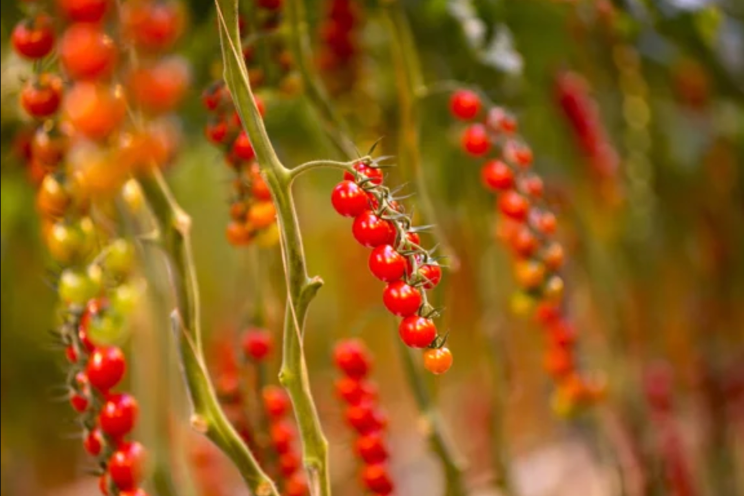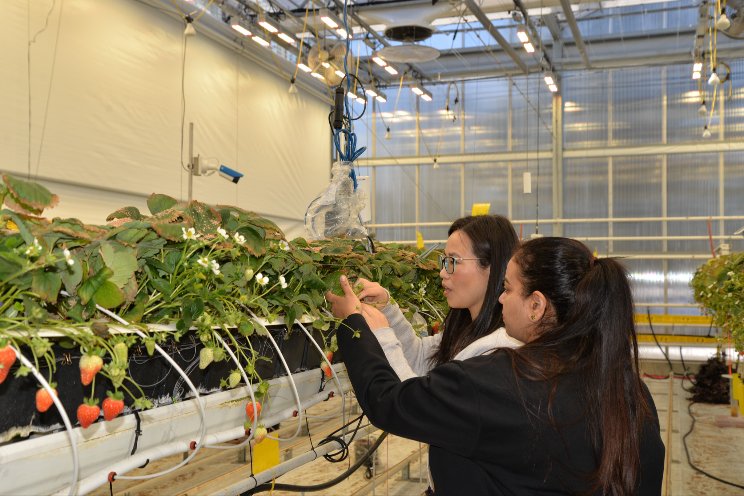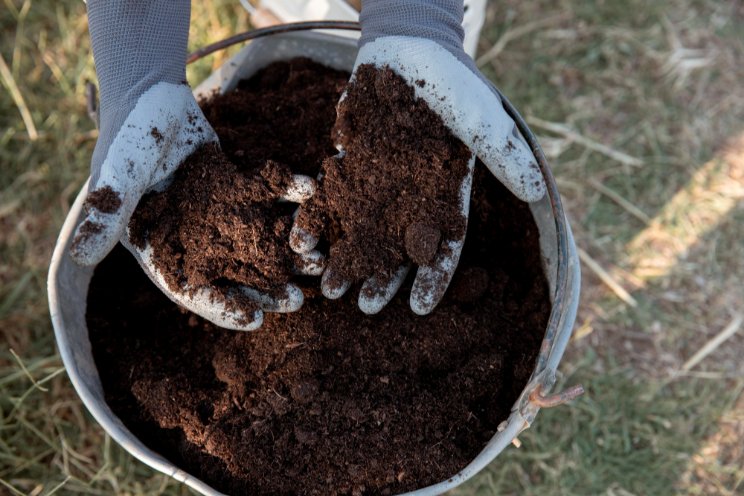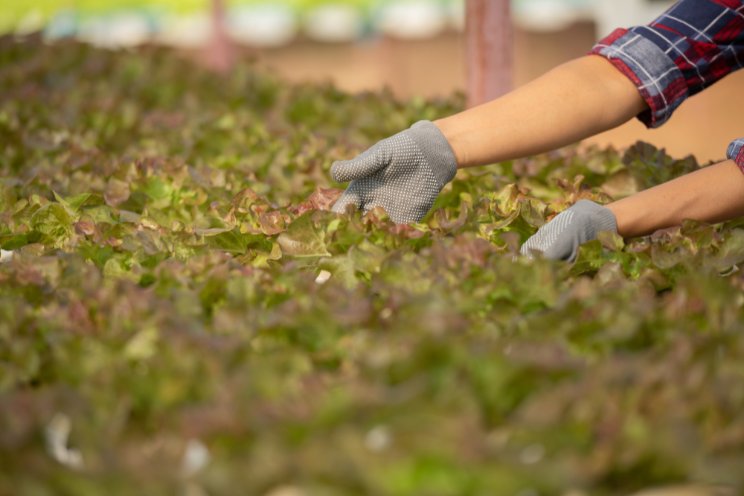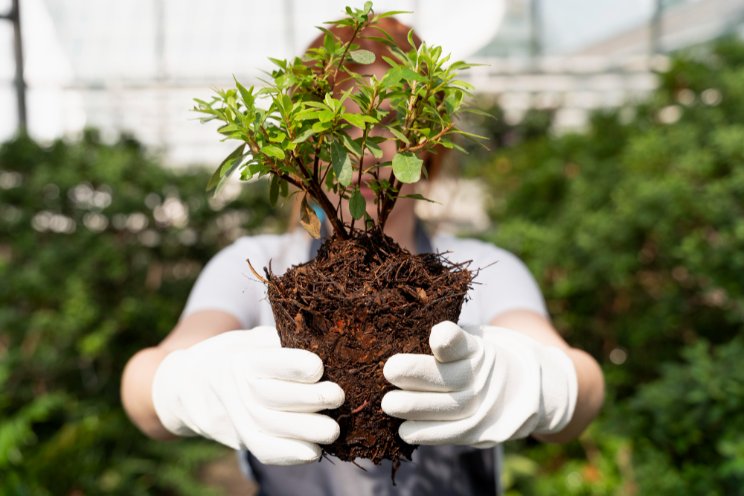175% more strawberries using AI
Added on 11 November 2020
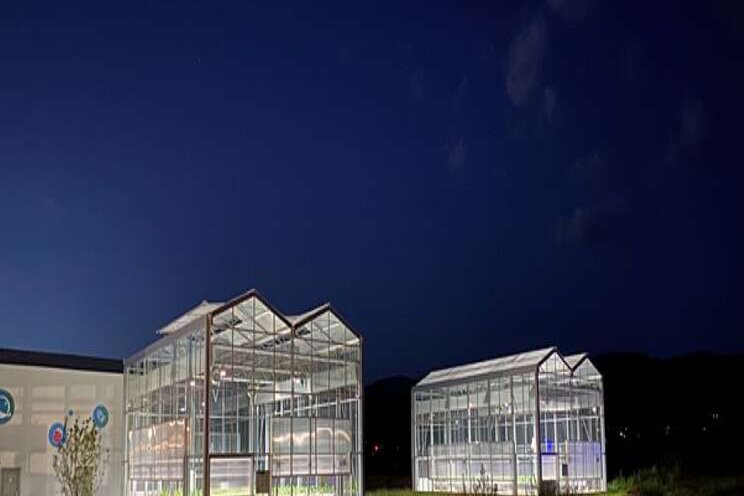
The competition, currently being held in the province of Yunnan, China, assembled some of the country's top strawberry farmers — the "Traditional Teams" — and several groups of scientific AI experts — the "Science and Technology Teams" — to come up with their best solutions and practices in farming and producing strawberry fruits. The winning team, expected to be announced in December, will be evaluated in terms of yield, taste and the cost of the strawberries.
Over the course of 120 days, the two teams provided their best practices and years-long knowledge and expertise to enact different solutions for the challenge. Agricultural experts or farmers under the traditional teams acted as control groups while AI experts had to control the growth of the vitamin C-rich fruit with artificial intelligence algorithms.
The findings are all presented and held at the Duo Duo Agricultural Research Lab, Pinduoduo's AI-driven, smart agriculture center that seeks to become the hub of agritech innovations in the country, helping rural Chinese farmers improve their productivity and find new sales channels online.
The inaugural competition, billed as China's first-of-its-kind cross-disciplinary smart agritech competition between a technology company and a university, is Pinduoduo's latest effort in bridging the gap between technology and the country's agricultural future. As China's largest interactive e-commerce platform and second-largest online marketplace, the technology giant has shown groundbreaking contributions in advancing the country's agricultural landscape and improving the livelihoods of rural farmers in the country.
With only a few weeks left in the competition, significant results have already been made and they are in the favor of the AI experts under the science and technology department. According to the official data provided by the expert team of Yunnan Academy of Agricultural Sciences, which is providing technical support to the competition, the AI teams have so far registered 175% more growth than traditional teams as measured by the average number of fruits harvested so far.
The development, proving once again the promise of AI algorithms in smart and efficient agritech solutions and practices, shows the game-changing potential of artificial intelligence — not just for strawberries but the country's agricultural industry at large.
New Breakthroughs in AI Farming Seen by Experts
Cheng Biao, an AI expert in the competition, had noted the significance of this great development, making the observation that the AI teams had surged ahead of the traditional growers by "about one week to 10 days." According to Chen, this is a promising sign for agricultural production and the farmers' livelihoods. "If my strawberries go to market one week earlier than yours, I will have the pricing power for the week," he said.
Cheng is a member of the Zhi Duo Mei AI team, which is made up of 11 experts from the Institute of Automation, Chinese Academy of Sciences, Kunming Academy of Agricultural Sciences and other institutes. Another team under the AI department, AiCU, is a seven-member multidisciplinary team from Wageningen University & Research and University of Amsterdam with specialties in greenhouse horticulture, electronic engineering, machine learning and mathematics.
Due to the ongoing COVID-19 pandemic, the AiCU team had to participate remotely in the competition from the Netherlands, effectively practicing farming in front of computer screens. This virtual set-up is a stark contrast to the competing teams in Pinduoduo's greenhouses, where AI teams have state-of-the-art equipment to read real-time environment data, including temperature and light, and can exert control from afar.
Still, despite this setback, Cheng saw the reliability of overseas remote planting - a big opportunity to change the way of agricultural production at the source, and the starting line of combining small farmers to realize large-scale and standard agricultural production. This prompted him to immediately set up a commercial company, aiming to provide AI algorithm solutions to help farmers reduce water and fertilizer consumption and improve yield.
Soon after, Cheng Biao had 200mu (equivalent to 13.3 hectare) of farm land to serve. "One partnership was negotiated in the morning, September 20, and the land was identified that afternoon. Now we are installing equipment in that land." Now, Cheng Biao has made the observation that small farmers are starting to embrace digital planting services in Yunnan.
The Future of AI Technologies for Farmers in the Fields
Throughout the ongoing competition, surprises and new discoveries were made by the competing teams and experts. According to Ruan Jiwei, a researcher from the Yunnan Academy of Agricultural Sciences, leveraging greenhouses, participating teams have pushed the strawberry harvest period in Yunnan over 60 days earlier — a notable turning point in the province's normal harvest turnaround. "When strawberries are to plant in the Middle-Lower Yangtze region, the first round of strawberry harvest in the Competition has completed, which can address the supply shortage of fresh strawberries in summer and autumn in Yunnan," Ruan remarked.
Meanwhile, Sun Yuqing, an expert from the top farming team, says he and his team have also expressed their confidence in the potential and importance of digital agriculture over the past two months in the competition. "We are confident in field management at the beginning. For example, we can deliver timely watering, fertilizing and pest control, and even manage each individual strawberry plant," he said.
Another question that smart agriculture poses — and hopes to facilitate — is, as urbanization pushes forward, who will be left to do farming in the future? He Dongjian, Director of IoT in Agriculture Key Lab, the Ministry of Agriculture and Rural Affairs, and Professor at Northwest A&F University, makes the observation that "existing farmers are born in 1950s and 1960s, a few in 1970s, and few in 2000s."
According to He, this is where smart agriculture comes in. "I have said that 10 years later, there will be unmanned farmlands, unmanned meadows and high-end plant factory," he said. Ji Rongxi, a top farmer and National Model Worker from the province of Jiangsu who has also begun to install technological devices to aid his farm produce, also echoed He's sentiment, saying, "I will retire from strawberry farming when I am 60 years old. In the future, who and how to plant? It is an urgent issue."
'One-Click Planting' for the AI Teams
The overall result of the AI teams' contributions in the competition can be summarized as one-click planting. These are the teams' collective efforts intended to improve the standardization and digitalization of the agricultural process.
For example, the CyberFarmer.HortiGraph team developed a repeatable, replicable and reproducible cloud system through standardization and digitalization of strawberry planting process. Lin Sen, the team's leader, explained, "a farmer was able to call the planting data with just one interface and plant strawberries according to our process based on rich experience even [though] he was ignorant of such technique."
Meanwhile, Li Daoliang, a member of the competition jury and Professor of College of Information and Electrical Engineering of China Agricultural University, noted that new farmers were totally different from the last generation, and that a new mode of production can transform the legacy way.
"For example, in this Strawberry Challenge, competitors were required to explore the laws of growing strawberries with intelligent system for machine learning and explore to use recognition, learning, decision and work intelligence in the system. This is also the core of agriculture in the future," Li said.
The Next Surprises in China's Agritech Future
With the competition scheduled to wrap up in the next two months, participants and experts are expected to discover more surprises and developments that will set the course for the future of agritech in the country. There are nearly 20 kinds of phased achievements in the competition — from clustering, image recognition, collision algorithm and multi-layer neural network.
Lanke, the leader of the Organizing Committee of the Competition, believes that a "smart plug-in" is expected to be developed for strawberry growers in China. This way, the optimal planting pattern can be applied in other regions with just one click. It can also help farmers from selling to growing their own strawberries.
The winning participants of the competition will be awarded by Pinduoduo with complete research funding, additional academic and commercial support, and full implementation support at its Yunnan Duo Duo farm.
Disclaimer: The views, suggestions and opinions expressed here are the sole responsibility of the experts. No Forbes India journalist was involved in the writing and production of this article.
Source and Photo Courtesy of Forbes India
Source: Forbes India
More news
